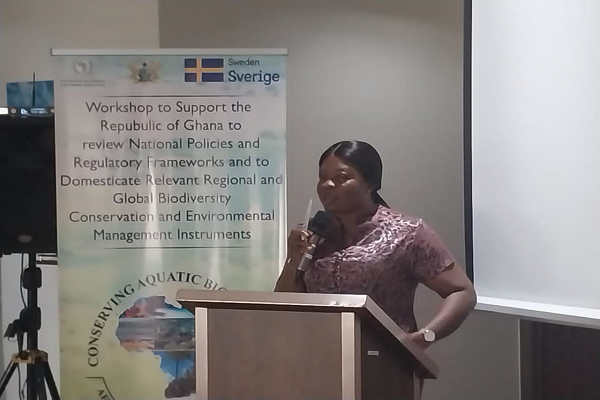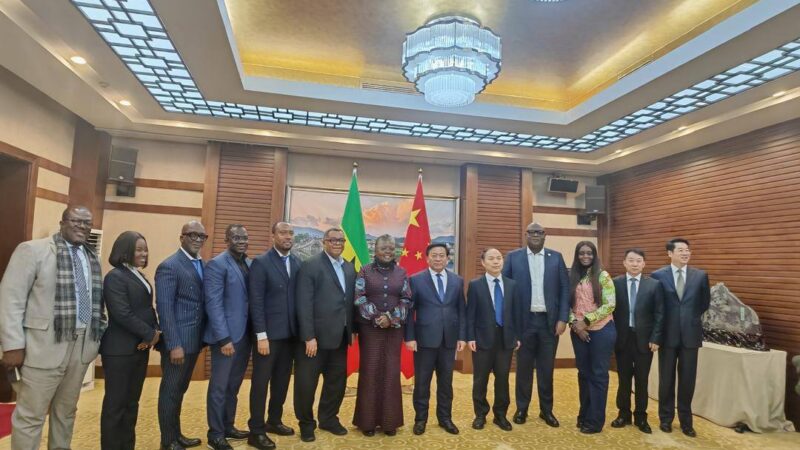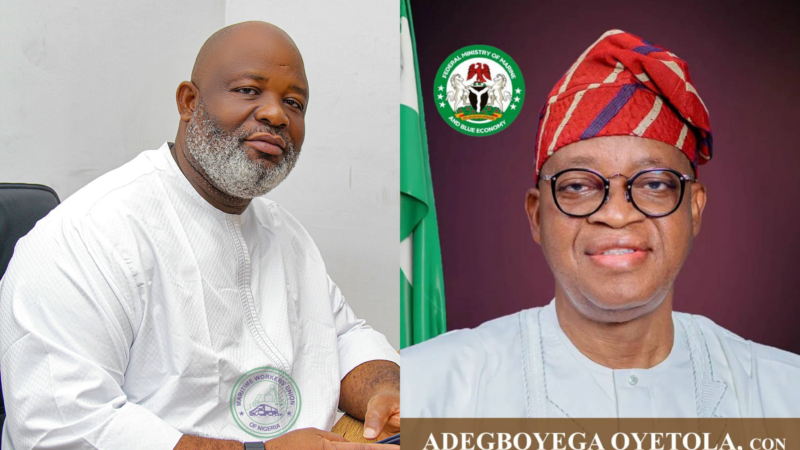Ghana Hosts Workshop on Aquatic Biodiversity and Environmental Management to Bridge Global Standards

AU-IBAR, in partnership with the Government of Ghana and with funding from the Swedish Government, is spearheading efforts to review and domesticate key global instruments related to aquatic biodiversity conservation, climate change mitigation, and environmental management. This initiative is being realized through a pivotal National Workshop scheduled for June 18th-19th, 2024, in Ghana. The workshop aims to bring together stakeholders from diverse sectors crucial to the Blue Economy, including water transport, fisheries and aquaculture, mining, oil and gas, tourism, and more. Facilitated by the Ministry of Environment, Science, Technology, and Innovation, the event will open with remarks from AU-IBAR representatives, ECOWAS delegates, and high-level Ghanaian officials.
Dr. Mohamed Seisay, speaking on behalf of AU-IBAR Director Dr. Huyam Salih, emphasized Africa’s rich aquatic ecosystems, which provide livelihoods, food security, and economic prosperity. He underscored the significance of the Africa Blue Economy Strategy, endorsed by African Union Heads of States and Governments in 2020, as a catalyst for socioeconomic transformation across the continent. The strategy aims to harness aquatic resources sustainably, fostering inclusive growth and environmental resilience.
Hon. Ophelia Mensah Hayford, Ghana’s Minister for Environment, Science, Technology, and Innovation, highlighted the urgent threats facing Ghana’s marine and freshwater ecosystems. These include overexploitation, pollution, invasive species, and industrial activities, compounded by urban development and climate change impacts. Stressing the repercussions on vulnerable communities, particularly women and youth, she outlined Ghana’s commitment to conservation and sustainable management of aquatic biodiversity.
Technical sessions at the workshop have delved into the Africa Blue Economy Strategy and outcomes from consultancy reports on global and national regulatory frameworks related to aquatic biodiversity. Discussions have focused on existing policies in sectors such as fisheries, tourism, water management, energy, and mining, aiming to identify gaps and define priority actions for aligning national strategies with global frameworks. This collaborative effort seeks to strengthen Ghana’s policy environment and institutional capacity, ensuring effective conservation and management of aquatic resources.
The workshop is a critical step towards supporting Ghana in aligning its national policies and regulatory frameworks with international biodiversity and environmental standards. Under the AU-IBAR’s three-year project, funded by SIDA, efforts are underway to optimize conservation efforts, mitigate adverse impacts of economic activities on aquatic ecosystems, and promote gender-inclusive practices in biodiversity conservation and environmental management across African Member States.
Source : AU-IBAR





